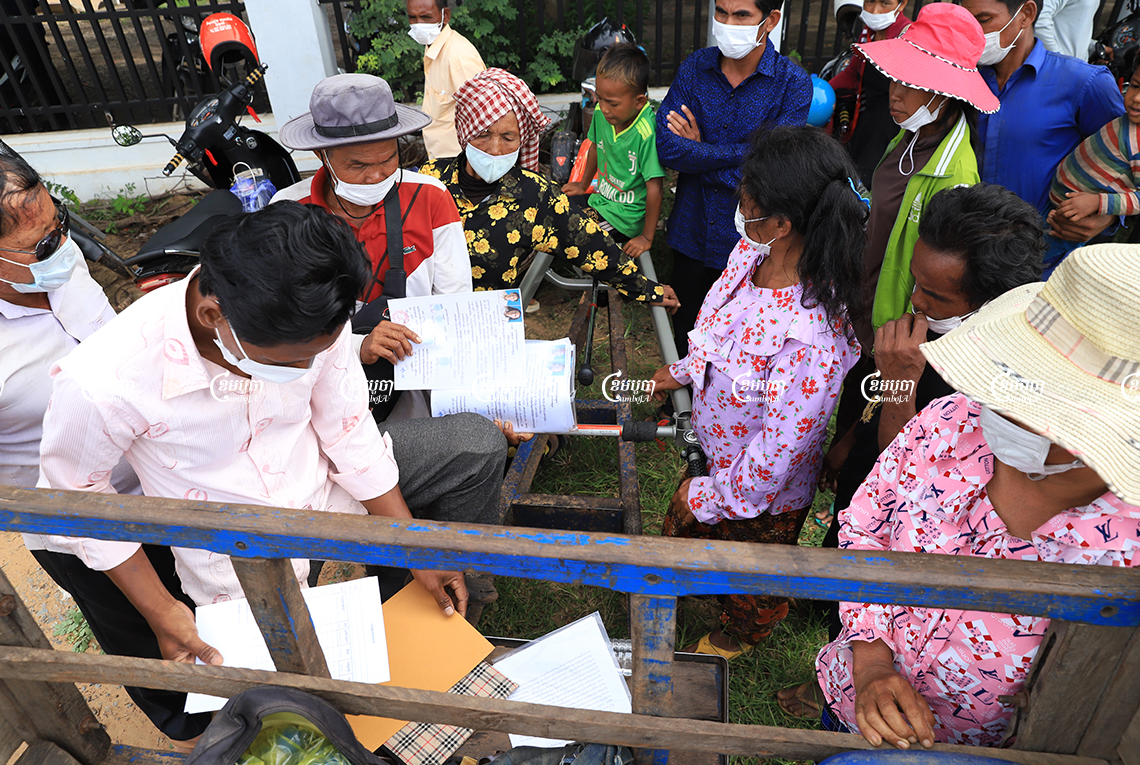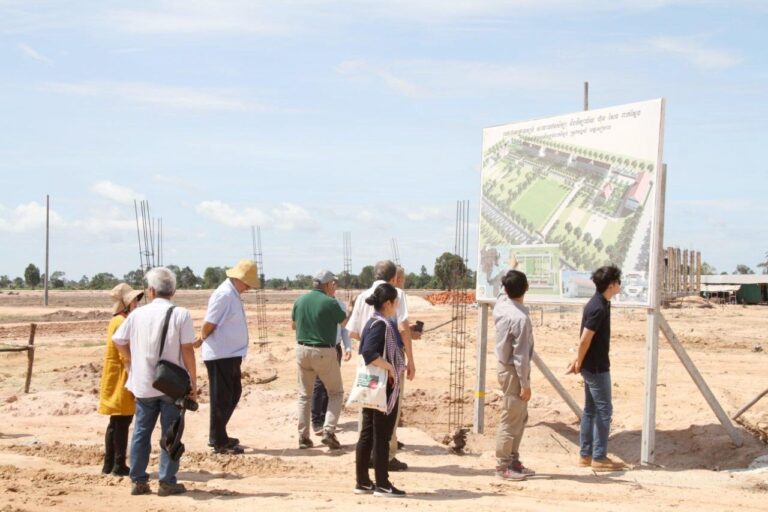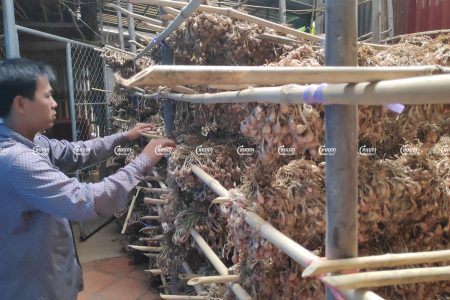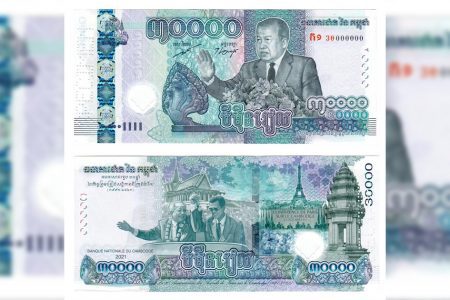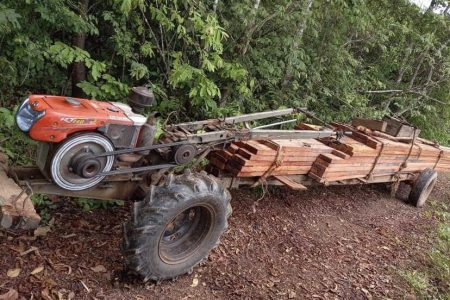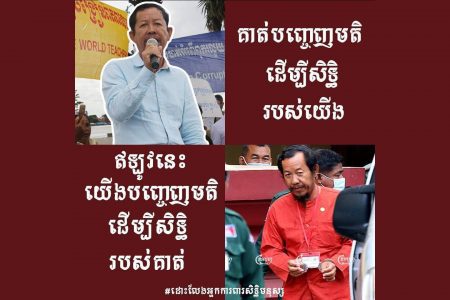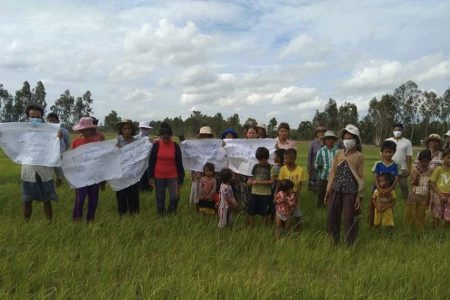Around 20 families are refusing to accept a deal from Apsara Authority to move to smaller plots of land in Siem Reap province’s Banteay Srei district, with the Angkor park management threatening to sue them in two weeks.
Around 40 villagers, from 21 families, protested outside a Siem Reap administrative building, rejecting the Apsara Authority’s offer of a 20 by 30 meter plot of land in the same commune they are living in. Villagers said they are currently living on larger pieces of land, in addition to farmland.
The Siem Reap administration released a letter on July 19 offering residents of Ta Ni village in Run Ta Ek commune 600 square meter plots to leave their existing land. The plots are in the same commune and residents have been given a 15-day deadline to accept the offer.
“In case the 21 families refuse this resolution, the Siem Reap administration and the Apsara National Authority will end the settlement and take legal action for whoever remains [on the land] to protest,” the letter reads.
The dispute dates back to 2005, according to the Cambodian Center for Human Rights, when the Apsara Authority planned to develop an eco-village in the area, with 270 hectares of the planned project overlapping with Ta Ni villagers’ farmland. The human rights NGO said the villagers had occupied the land since 1979 with “soft” titles, with residents facing no issues till Apsara Authority got involved.
Han Ravuth, 40, is one of the villagers who protested on Monday and will lose 1.5 hectares of the farmland if the Apsara Authority follows through on their threat. He said the land was his inheritance and critical for him to farm for sustenance.
“Then they want to give us 20 by 30 meters of land, how can we farm it in order to survive,” he said. “It is very small compared to our existing land.”
“I cannot farm or do agriculture to feed my family, and they call for us to draw lots for new land, but I rejected it. I need a proper solution because we are poor farmers and depend only on our farms.”
He said he had refused a previous offer from the Apsara Authority to buy the land for $500 to $700 a hectare, as well as another resolution that would require him to move to Tbeng commune in the same district where the land was unsuitable for agriculture, he added.
“We will still fight for our land even if the authorities arrest or threaten us,” he said.
The Cambodian Center for Human Rights profile on the land dispute says that while Apsara Authority verbally promised villagers $500 to $700, many ended up thumbprinting documents with compensation far less than the promised amount.
Siem Reap deputy governor Ly Samrith said that authorities will take legal action against anyone who is still making demands because the dispute had been resolved already.
“We have provided [them] land on the same site, and if they are not satisfied, we do not know what to do,” he said.
He claimed villagers had no “legitimate rights” to the land because they did not have land titles, adding that they had “occupied the land.”
Apsara Authority spokesperson Long Kosal said authorities had negotiated with villagers many times – offering to buy the land or relocation to another site – but that residents had refused both offers.
He claimed that authorities had built infrastructure for those who would be relocated, alleging that villagers only started using the land after a sub-decree to convert the land into a nature area.
“Previously, people didn’t do anything on the land. But, when the sub-decree was released and the authorities acted, they started to do something on that land,” Kosal said. “If they were [cultivating the land] why don’t we see anything on that land before.”
Hub Touch, another resident of Ta Ni village, said he has 9 hectares of land in the area and would initiate legal proceedings against the authorities if they attempted to evict or sue him.
“If the authorities take legal action, I will confront and file a complaint with the court because I have lived on my own land for a long time. If they want my land, let the law make a decision,” he said.
Sours Narin, a provincial investigator at rights group Adhoc, said authorities had violated peoples’ land rights by providing them a small plot of land, which was an unfair resolution to the dispute.
“We can see [the settlement] is unfair because some have 3 hectares [of land], but they will only get 20 by 30 meters,” he said, adding the compensation offered was not in line with requirements set out in the Land Law.


